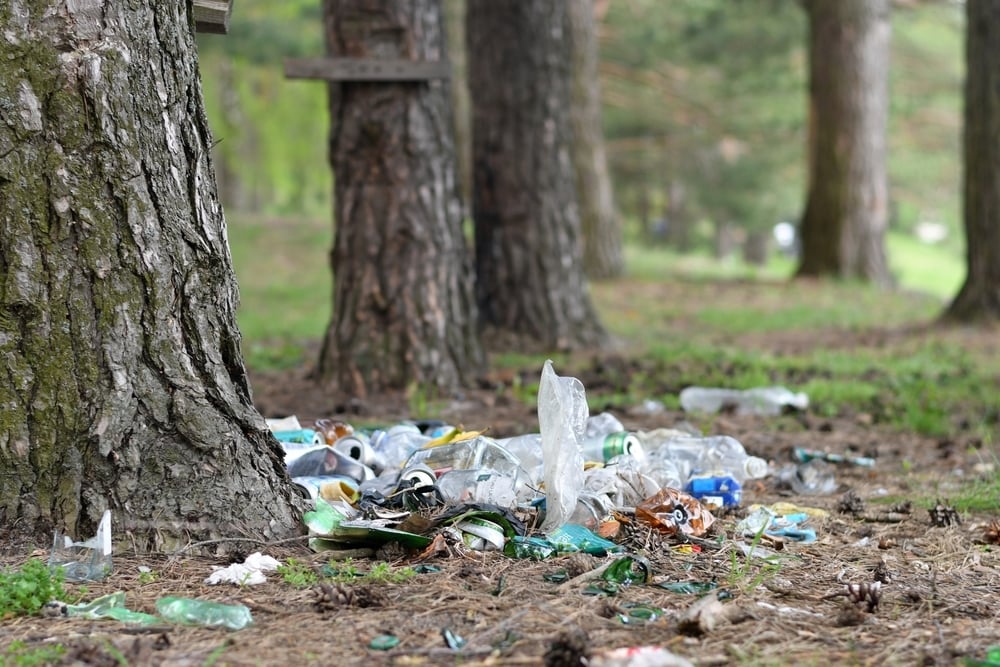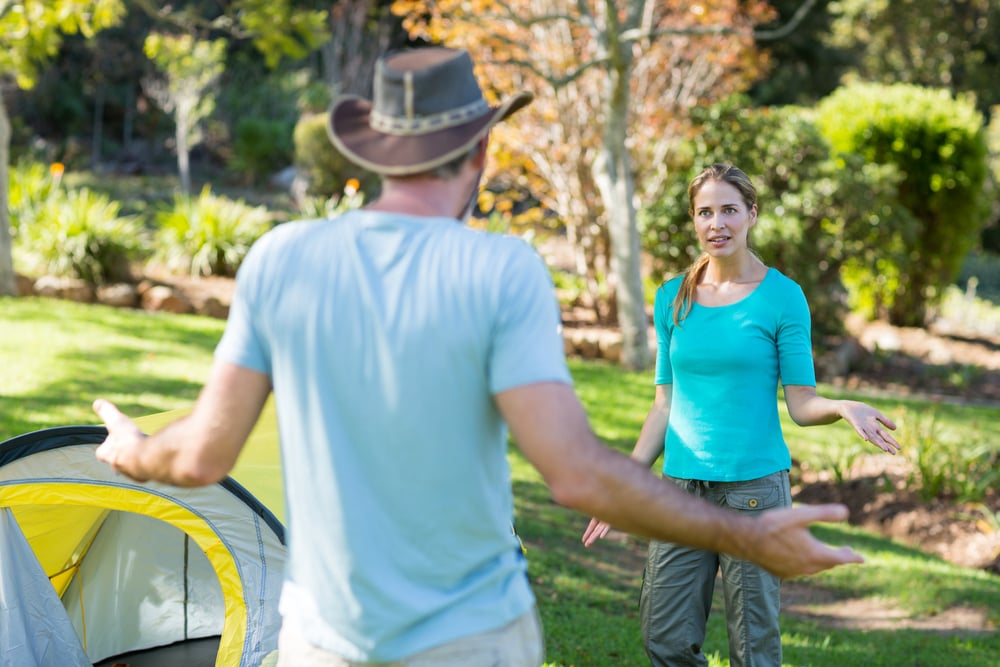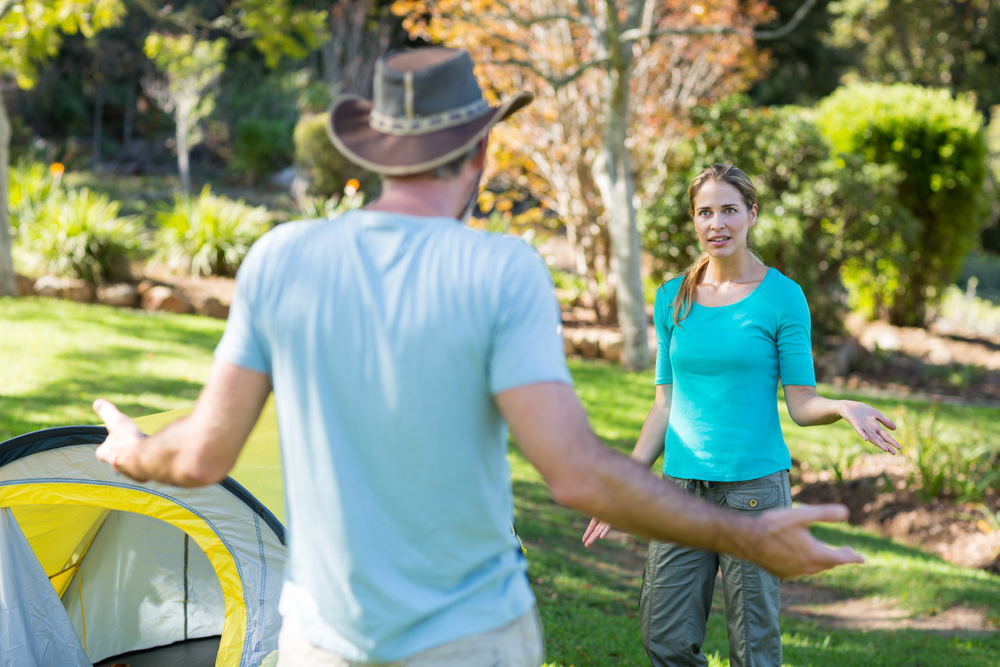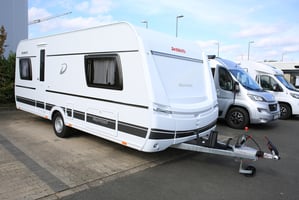How to keep pesky midges away when travelling in your caravan
The caravanning community is generally a close-knit one, with people living alongside each other fairly harmoniously, each with their own little routines and ways of doing things. Most of the time, it all appears to work quite well, and people tend to understand that being a part of this wonderful life is about getting along with your fellow humans and leaving no trace on the land whilst you go about your travels.
Occasionally, however, you might spot someone doing something questionable, such as emptying their black waste water onto the grass or into a roadside drain, or leaving their car engine idling without end, or maybe using their hook-up lead while it’s still coiled up. On occasions such as these, there follows a bit of a dilemma when you witness them - do we intervene and say something, or should we let it slide and mind our own business?
It’s an interesting question, for sure…
Let’s start with the case for speaking up and saying something. Campsites and other controlled sites rely on everyone following a few basic rules to ensure that everyone stays safe and comfortable (and sane - let’s be honest). When someone dumps waste incorrectly, or risks overheating their hook-up lead, they’re not just bending the rules - they could be creating a health and safety hazard or damaging the site’s infrastructure. Speaking up can therefore protect the environment and even prevent accidents from happening. If it impacts you personally - for example if someone’s parked up only 2 metres away from you, and the site rules specify that you must leave 6 metres between each adjacent caravan - then you might feel that your own safety is directly impacted. And to be fair, your own personal space to boot.
You might wonder why someone would do something that you personally view as a bit stupid. In some cases, the other person might simply not know the correct way to do things - indeed, many new caravaners genuinely are learning as they go, so to speak. A polite word, offered calmly and without embarrassment, could educate rather than be seen as a criticism, and it might actually be appreciated more than you may expect, especially if the person was too scared to ask for help in the first place!

Ok, so what are the main reasons for speaking up?
Maintaining safety and site rules
Often, addressing any rule-breaking will help to keep everyone safe. Things like incorrectly emptying waste tanks or misusing electric hook-up leads can cause hygiene issues or a fire. If you say something, you might be able to prevent a small oversight or mistake from becoming a bigger problem that affects the whole site either now or over time.
Protecting the environment and the onsite facilities
Campsites rely on proper waste and rubbish disposal, and the correct use of equipment to stay clean and functional. When people cut corners or misuse things, it can damage the grass, block the drains, or even pollute the local water systems. By pointing it out, you’re helping to preserve the site and its surroundings for future visitors.

It encourages awareness
Many people simply don’t know the rules, especially newer caravaners or holidaymakers borrowing other people’s vehicles. A calm, polite explanation might genuinely help them understand why those rules exist, which surely just turns what could be an awkward moment into a positive learning experience.
When others see you calmly addressing an issue, it can set a respectful tone across the campsite, too. It shows that people care about their shared spaces and are willing to uphold good standards without aggression or judgment. That’s probably the key takeaway here - if it’s said correctly, and in the right tone, people are unlikely to take offence to being shown how to do something correctly.
But what if they don’t appreciate being told?
Well, there are downsides to all this speaking up! If you go around correcting others it can easily come across as interference, no matter how good your intentions are. Campsites and other controlled areas are personal spaces; people relax there, and being called out can make them feel defensive or irritated. Worse still, confronting the wrong person (someone aggressive or dismissive, or unwilling to listen, for example) could escalate into an argument that ruins your peace for the rest of your stay. Even subtle feedback can create some awkward tension, especially if you’re parked nearby to them, and you never know how someone is going to take your comments. And, while you may feel strongly about proper caravanning etiquette, unless the behaviour is dangerous or damaging something, it’s rarely worth souring the atmosphere over…
And what if you stay quiet?
Well, there's a few reasons why you might choose this option...
You’ll avoid any unnecessary conflict
Not everyone reacts well to being corrected, even if you’re right! Confrontations can quickly escalate, leaving bad feeling between pitches and spoiling the atmosphere for everyone nearby. Sometimes silence protects your peace, and this might be the best option if the issue is more of an annoyance than a genuine safety hazard, for example.
You can let the appropriate people deal with it instead
It’s often true that it’s not your job to police others unless there’s a clear danger. Campsites have staff that are there to deal appropriately with any rule-breaking and letting them handle it ensures the right action can be taken. So, instead of confronting someone directly, you could quietly mention it to site management. That’s their job - to handle rule enforcement and safety issues and they can approach it from a position of authority and experience, avoiding any personal conflict for you.
You’ll protect your own peace
No doubt you’re there to relax, not to take on the stress of other people’s behaviour! If you start engaging in disputes it can shift your focus away from your trip and spoil what should be an enjoyable experience - especially if you’re getting evil stares for the rest of the time you are there after raising an issue with someone.
You can choose your battles wisely
Not every annoying bit of music blasting or dog barking is worth the tension of a potential disagreement. A noisy neighbour might irritate you briefly, but they probably aren’t doing any real harm. Learning to let go of the small things is a good skill to have, and of course, we ourselves may be doing things that annoy others that we are not aware of! Gulp.

Ultimately, whether you speak up or not likely depends on the severity of the issue and your tolerance for confrontation. If what’s happening affects anyone’s safety, health or wellbeing, then perhaps you might feel it’s right to say something (and possibly only via the onsite staff). If it’s simply poor etiquette, consider whether it’s worth the stress. The caravanning lifestyle functions best when everyone quietly does their part, and sometimes that means taking responsibility, and sometimes it means letting others learn in their own time. The trick is knowing which matters more in the moment: someone doing something the way you feel is correct - or your peace of mind…







